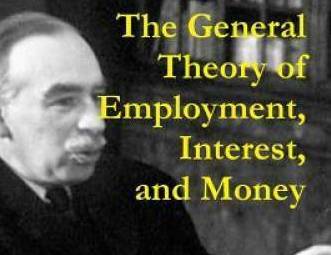Keynes’ “General Theory of Employment, Interest, and Money.”
I went to my local restaurant yesterday for a meal. Ntinda Takeaway is known for having affordable delicious meals.
However I and many customers were shocked by the 1,000 to 2,000 shillings markup on all meals and snacks—this is an equivalence of 30 cents to 60 cents, which is nothing to sneeze at in a country where the average annual income is under $800.
The uptick is due to an increase in the cost of goods across Uganda as inflation seeps into the economic firmament, thanks partly to an increase in transportation services cost by road.
Official figures already indicate that the inflation rate in Uganda increased to 3.8% in February, from 3.7% in January of 2021. This will worsen, with the increased size of the already bloated state, and the administration cost. All this is due to Gen. Yoweri Museveni’s patronage system, his way of buying silence and stifling dissent and opposition.
Politicians are getting fatter, and the state becoming an increasing burden to taxpayers. Meanwhile there’s significant decline in economic activities, namely in trading, manufacturing, transport service, industry, tourism, construction, and agriculture. Agro-processing, a backbone of our economy, will suffer.
Sound development policy must quicken the pace of industrialization, with more investment in agro-processing, infrastructure development, marketing productivity, and adding value at every stage of the food production chain. The over-bloated subsidized state needs downsizing.
The outside countries that support Uganda risk compounding matters by not insisting on focused policy. Uganda gets nearly $2 billion in annual financial support from the United States and the EU. In addition to conditions such as democratization being one of the considerations, economic polices that support Small to Medium Enterprises (SMEs) must be supported.
There must be demand that government improve fiscal discipline, with prudent fiscal management as a cardinal rule. Tax incentives must steer investments across the spectrum: agro-processing; manufacturing; construction; service industry; and, tourism.
SMEs should serve as the bulwark of development. Yet Gen. Museveni seems to ignore or, in some cases, hamper such businesses, with punitive taxes, ostensibly to milk resources for the state but in reality becoming a disincentive to firm.
In industrialized countries, such as the United States, SMEs account for the majority of new jobs created. In pre-covid-19 U.S., small businesses accounted for 75% of the net new jobs in the economy. They paid more than 44% of the nation’s private payroll and generated more than 50% of the U.S. private gdp. Small businesses also are the backbone of Uganda’s economy. Such businesses are characterized by Batembeyi—street venders—and other entrepreneurial persons operating in the informal sector. Many left their rural homes to try to make it in the big cities, including Kampala, the capital.
Many of these entrepreneurial Ugandans don’t want a handout. They set up shop and roll up their sleeves. According to government data, more than 50% of the country’s gdp is accounted for by the informal sector, which also employs 80% of the labor force. The pandemic has taken a toll on this sector and the overall economy.
Salons and bars, and many such establishments suffered after their operations were shut down during the Lockdown. With minimal commercial activity, small business owners aren’t able to plough back profits into an economy on its knees. Household level debt has soared as families struggle to make ends meet.
Many Ugandans barely earn enough money to support themselves and their families. For those who have to pay school fees for children, the financial pressure increases. Just as in the industrialized countries, SMEs in Uganda and others in the working-age population need a stimulus package.
It was the British economist John Maynard Keynes—author of “The General Theory…”—who popularized the concept of government stimulus, or boosting “aggregate demand” in the parlance of the profession. It helped lift the industrialized countries from the collapse of the Great Depression.
Uganda, and for sure all African countries in this covid-19 era is badly in need of stimulus. As a Keynesian economist, and businessman, I advocate for prioritization of an effective economic rescue package for our indigenous businesses. Any macro-economic impact could be addressed in the future. Now is the time to arrest economic decline.
Columnist Matogo can be reached via mugashop75@gmail.com






